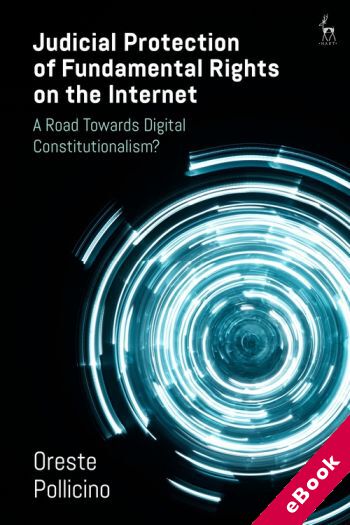
The device(s) you use to access the eBook content must be authorized with an Adobe ID before you download the product otherwise it will fail to register correctly.
For further information see https://www.wildy.com/ebook-formats
Once the order is confirmed an automated e-mail will be sent to you to allow you to download the eBook.
All eBooks are supplied firm sale and cannot be returned. If you believe there is a fault with your eBook then contact us on ebooks@wildy.com and we will help in resolving the issue. This does not affect your statutory rights.
This monograph explores how the Internet impacts on the protection of fundamental rights, particularly with regard to freedom of speech and privacy. In doing so, it seeks to bridge the gap between Internet Law and European and Constitutional Law.
The book aims to emancipate the debate on Internet Law and Jurisprudence from the dominant position, with specific reference to European legal regimes. This approach aims to inject a European and constitutional “soul” into the topic. Moreover, the book addresses the relationship between new technologies and the protection of fundamental rights within the theoretical debate surrounding the process of European integration, with particular emphasis on judicial dialogue.
This innovative book provides a thorough analysis of the forms, models, and styles of judicial protection of fundamental rights in the digital era and compares the European vision to that of the United States. The book offers the first comparative analysis in which the notion of (judicial) frame, borrowed from linguistic and cognitive studies, is systematically applied to the theories of interpretation and argumentation.
Note the book was previously announced with the title Judicial Dialogue and Protection of Fundamental Rights in the Internet: A Comparative Perspective